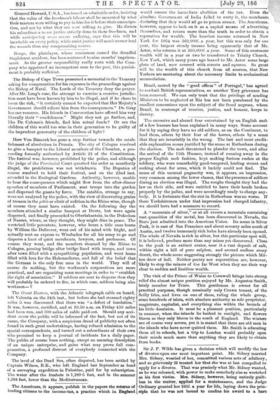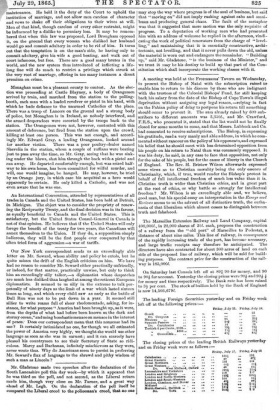Sir j. P. Wlide has given a decision which will
modify the law of divorce upon one most important point. Mr. Sidney married Mrs. Sidney, wearied of he; committed various acts of adultery, and so grievously ill treated her that she was at last compelled to apply for a divorce. That was precisely what Mr. Sidney wanted, as he was released, with power to make somebody else as wretched as his first victim. Min. ,Sidney, -however, being entirely guilt- less in the Matter, applied for a maintenance, and the Judge Ordinary granted her 245/. a year for life, laying down the prin- oirie that he was not bound to confine his aweird to a bare
' institution of marriage, and not allow men careless of character and vows to shake off their obligations to their wives at will. Men of that kind, though careless of every other restraint, might be influenced by a dislike to pecuniary loss. It may be remem- bered that when this law was proposed, Lord Brougham opposed it, on the ground that every woman who disliked her husband would go and commit adultery in order to be rid of him. It turns out that the temptation is on the man's side, he having only to commit adultery, give his wife a good beating, and walk out of court infamous, but free. There are a good many brutes in the world, and the new system thus introduced of inflicting a life- long fine will do much to restrict a privilege which struck at the very root of marriage, offering in too many instances a direct premium on crime.































 Previous page
Previous page